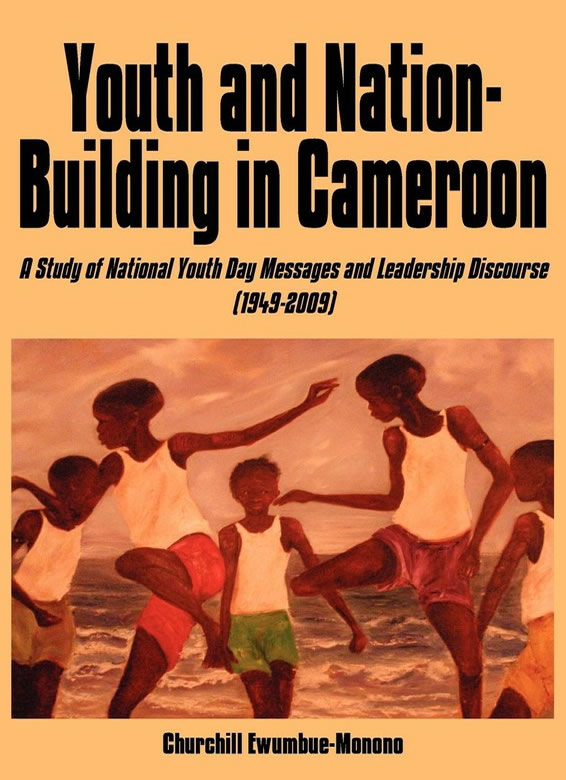written by Churchill Ewumbue-Monono
A Study of National Youth Day Messages and Leadership Discourse (1949-2009}
This meticulous and comprehensive documentation of Cameroonian Youth Day Messages and leadership discourse on youth from 1949 – 2009 is a gold mine for researchers, historians and anyone interested in studying youth, politics and society in Africa. The book presents and explores themes and content of Youth Day Messages: how these messages tied in with, or veered away from, key events and issues of the time; how they served as a platform for West Cameroon governments, and the Ahidjo and Biya regimes to articulate their political vision, justify their policies, sell their respective ideologies to the youth; and what lessons could be drawn from them on competing, conflicting and complementary perspectives on youth agency in Cameroon and Africa.
Churchill links the Youth Day to ongoing discussions in Africa about the role and place of youths as agents of development in Africa. Most significantly, he finally puts Cameroon’s controversial Youth Day in its appropriate historical context – not as a political device created by the Francophone politicians to distort Cameroonian history and erase ‘plebiscite day’ from the collective memory as Anglophone nationalists claim, but as a British Cameroons colonial legacy, successfully sold to the Ahidjo regime as a day to be commemorated throughout the federation, by leaders of the federated state of West Cameroon.
| ISBN | 9789956558322 |
| Pages | 210 |
| Dimensions | 229 x 152 mm |
| Published | 2009 |
| Publisher | Langaa RPCIG, Cameroon |
| Format | Paperback |





3 comments
“Ewumbue-Monono’s work demonstrates the imperative nature of the youth question in contemporary debates on development in Africa. Extensively researched in scope and depth, this volume underscores the author’s passionate commitment to youth issues. In a continent overwhelmingly youthful, this work is a stark reminder to the African leadership that youth issues need renewed focus in our collective search for prosperity and progress.”
Dr Jude Fokwang, Social Anthropologist, University of Cape Town, South Africa
“The author must be commended for bringing together this rich volume on a topical issue. With a focus on continuities and changes in the roles attributed by the Cameroonian government to the youth in different stages of the country’s political history, the book outlines the major themes in the leadership discourses for the mobilization of the youth in the national development initiatives, and provides some insights in public efforts to improve the educational standards and job opportunities for the youth.”
Dr Piet Konings, Sociologist, African Studies Centre Leiden, The Netherlands
“Rich and painstakingly documented – A fascinating collection indeed.”
Dibussi Tande